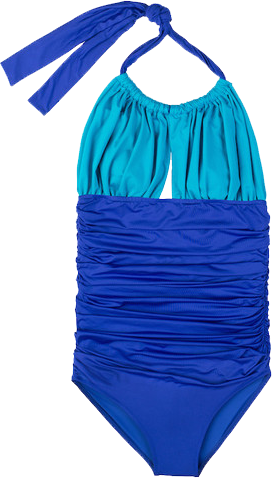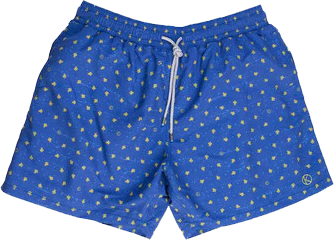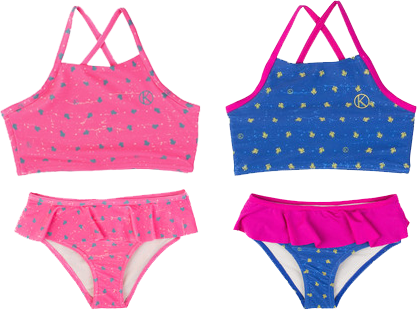Women We Know #40 - Kaitlin Morgan
 Kaitlin wears Henna Mendhi sports top and Henna Mendhi high waist bottom
Kaitlin wears Henna Mendhi sports top and Henna Mendhi high waist bottom
Meet Kaitlin, a young, sporty and passionate occupational therapist from Australia - Having the opportunity to relocate from her home country to Singapore 2 years ago, she shares with us the challenges she met dealing with patients from different backgrounds and cultures. By how being creative and having a positive outlook on life affects one's journey to recovery.
Hi Kaitlin! Thanks for making time to be a part of our K.BLU Women. Tell us what brings you to Singapore?
I’m working as an occupation therapist, which when introducing yourself to new friends we always have to explain what it is because no one ever knows. We fly under the radar but are a very important part of someone’s rehabilitation after an injury or encountering a health condition which can affect the tasks you do in your day-to-day life. We work with you and your physiotherapist to enhance your quality of life as best we can and to assist you to return to everyday tasks from as little as brushing your teeth, dressing and showering to returning to work. If you made a list of all the things you would do during your day, imagine then having an impairment or an injury that restricted you from being able to achieve these tasks. We help people to regain their independence again whether it be by rehabilitation exercises or by modifying the tasks so that you are able to complete them.
Why did you choose this career? What do you specialise in and why did you choose this specialty ?
I always knew I wanted to end up in a career where I was helping people. When I was younger I always wanted to be a nurse. I would pretend to be a nurse with family and family friends and would always volunteer to take care of my grandmother. I think I got that part of me from my mum who was a nurse. So when it came to picking university courses I had actually heard some stories from my friends who were studying nursing and it actually didn’t interest me anymore. So I dug a bit deeper and ended up coming across occupational therapy, which I also never knew what it was but after researching it I really liked what I read. And being an athlete the rehabilitation side of an OT really grasped my attention. I currently don’t have a specialisation, my current role is a rotational position so I have worked in orthopaedics, general medicine, and geriatrics.
Tell us about your background and experience as a therapist.
I graduated in November of 2016, during my studies I was lucky to complete work placements in;
1. A community hospital working with stroke and amputee patients,
2. An acute hospital working with all conditions, I ran the preadmission for hip and knee replacements and was able to run the hospital on days my supervisors were off campus
3. In an occupation rehabilitation company, working with injured workers and their insurance companies in order to grade their working tasks to enable them to return back to work in a timely manner.
4. I was apart of a research project group where we created a resource folder for stroke survivors returning into the community
5. My current position as explained earlier I am currently rotating between departments; where I have completed orthopedics, general medicine and geriatrics.
What are the challenging aspects of your work?
Since working here in Singapore I have found culture and motivation to be the most challenging. I think for the patients we work with we are not only assisting them to return to their day-to-day lives as normally as possible but we also play a role in motivating them as well. In Singapore that is where culture comes into play by a means of hiring a maid/helper to do those tasks for you as a pose to modifying a task or doing rehabilitation to be able to complete them yourselves.
Share with us your most challenging experience as a therapist.
In my current role my most challenging experience would be language and culture. I have been in many situations and conversations with family members of my patients where they will argue and disagree and tell you how to do your job and what you’re doing wrong which is a challenge to being to deal with while continuing to treat your patients using your clinical judgment.
How do you handle workload stress and emergency situations?
I like to think I balance my work and life simultaneously always making sure I am staying fit and healthy, socialising with friends is also important to ones happiness. I surround myself with people who makes me happy and people who supports me - all these make the stress seems smaller. Talking about things that happen is my biggest advice to anyone. Working in healthcare makes you see a lot of sad scenarios and you have to deal with them a lot as you’re moving along - the way you deal with it gives an impact on someone’s quality of life, which you also get to see a lot of inspiring cases weighing out the bad and the good. In regards to emergency situations I have been very lucky with the workplaces I have worked in and have been able to build a great relationship with my employees to have respect and understanding from them which make it easy for me to deal with an emergency situation.

Kaitlin wears Favola Nautica criss cross bikini & Favola Nautica tights
What is the most interesting part of your job?
I think the most interesting part of my job is being creative and inventive for those patients we help to return to independence. It’s about finding solutions and a means to doing every day tasks in ways you would never think would work but that create a meaningful and enhance the quality of life who thought they would never be able to be independent.

Kaitlin wears Athleisure colour block sports bra
How do you motivate people who have given up on recovering from their illness ?
This can sometimes be very hard, but I think it comes down to finding a passion within someone. I feel there is always one or two passions we can find within people and the best way to discover this is to talk to people and take an interest and concern in their lives and really listen to them. If you do this you’ll always discover a motivating factor to use for therapy.
What are your thoughts on the current healthcare system in Singapore & what improvements can be made?
The current healthcare system in Singapore is well respected. I think it lacks in health promotion and education. You see a lot of patients who come in for health complications that can be prevented by diet or medication management. To which I have had patients tell me they never knew this could happen from the diagnosis given.
What do you think lacks in the recovery system of Singapore?
I think a means of independence is lacking in Singapore. A lot of patients don’t want to or care about regaining their independence. They want to hire someone to help them and to do things for them even if they would be able to do it themselves.


 Women
Women Men
Men Kids
Kids Kaitlin wears
Kaitlin wears 


